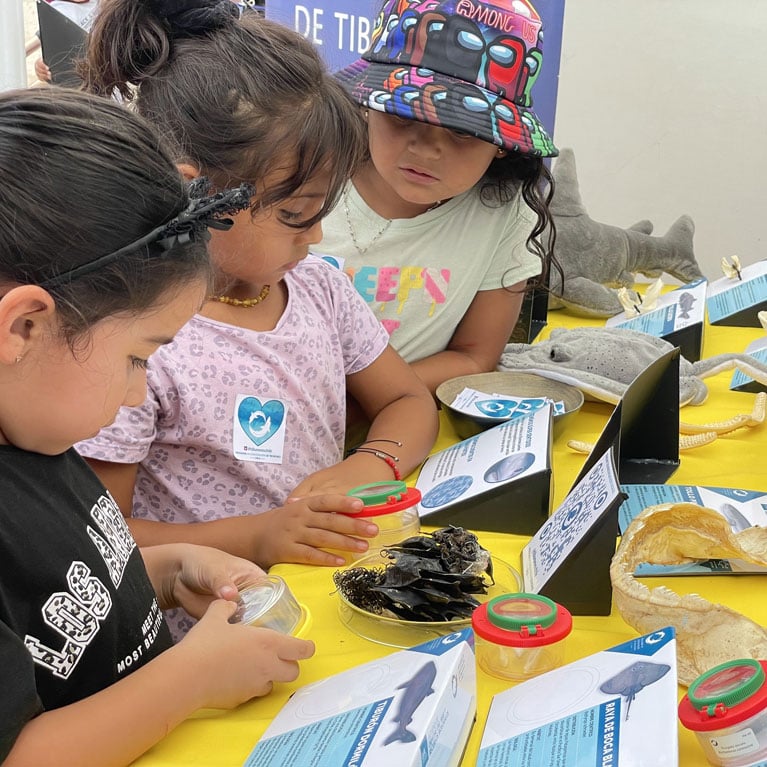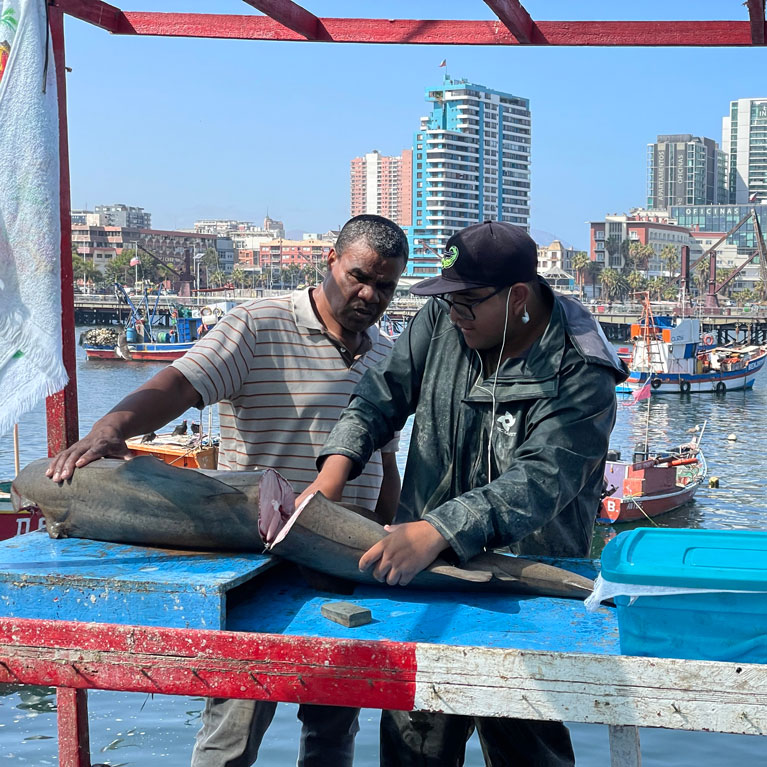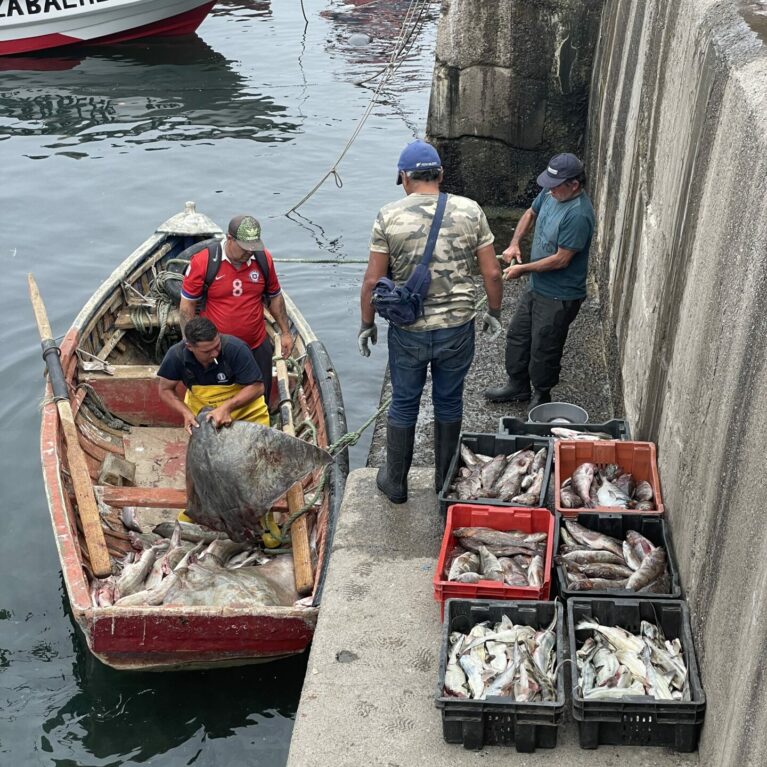Sustainability for Chilean houndshark fisheries
All three of the endemic (occurring nowhere else in the world) houndsharks found in southern Peru and northern Chile are Critically Endangered. Responsible fishing could reduce their short-term mortality, but currently there are no management measures for these species. Carolina wants to link scientists and fishers so that they can work together for sustainable houndshark fisheries. She wants to ensure that the fisheries’ management takes the conservation of these species into account and to create awareness among both fishers and the public about the ecological role of these sharks.
I was born in Valdivia, one of the most charming (and rainy) towns in southern Chile, only 20 minutes from the ocean. I used to spend most sunny days of my childhood at the beach and I was fortunate to be able to observe artisanal fishermen and women and learn from them. One of the best parts of my weekend was the day trip to fish markets, where I got hands-on experience of the local biodiversity and went home with fish and shellfish for dinner. And that is where my passion for marine life started. As I grew...



PROJECT MUSTELUS: Empowering fishers and anglers to save Chilean houndsharks
Our key objective is to establish a link between fishers and scientists to promote sustainable fishery practices for Critically Endangered houndsharks in northern Chile, and to institute a conservation awareness strategy among local fishers and the community regarding the ecological role of Chilean houndsharks.
This is important because promoting responsible fishing to reduce fishing mortality in these species will reduce the threat of their extinction in the short term. No such project has been conducted in this region, which may be a critical refuge for houndsharks. Considering that there are no management measures for these species, it is necessary to have an integrated approach that directly involves fishers and anglers in the recovery and sustainable harvest of houndsharks in Chilean waters.
The coastal waters of southern Peru and northern Chile are biodiversity hotspots for houndsharks. Of the five species reported in the south-eastern Pacific Ocean, three are endemic to this region: the speckled smoothhound (Mustelus mento), the humpback smoothhound (M. whitneyi) and the spottedhound (Triakis maculata). All three species were historically abundant and targets of the artisanal fisheries of coastal communities in the area. Currently, all these sharks are considered Critically Endangered by the IUCN and are highly likely to go extinct over the next two generations. This risk assessment increases the need for rapid changes in fisheries management and conservation strategies to ensure their survival. However, very little is known about the basic biology of these species, which makes evidence-based management impossible. We do know that involving fishers in research can help to improve fisheries management, as their experiential knowledge can contribute to increasing the quantity and quality of data. However, good communication is crucial because fishers fear that management actions will limit their fishing opportunities. Therefore, the importance of this project is that it will generate novel skills that empower fishers to adopt fishing strategies that will reduce houndshark mortality.
- To promote sustainable self-management of the Chilean houndshark fishery that is compatible with conservation needs.
- To institute a conservation awareness strategy among local fishers and the community about the ecological role of Chilean houndsharks.
Summary of main research results/outcomes
In northern Chile, artisanal fisheries unintentionally catch and sell sharks, rays, and chimaeras, many of which are Critically Endangered. Our research found that houndsharks (Mustelus mento, Mustelus whitneyi, and Triakis maculata) make up most of the by-catch, with 75% being juveniles, threatening population recovery. Fisher interviews revealed a lack of awareness of shark conservation issues, but many expressed willingness to adopt more sustainable practices. Community outreach, including workshops, school visits, and the illustrated book El Gran Viaje de Titi, successfully raised awareness of shark conservation. Fishers have suggested gear modifications and by-catch reduction strategies that will be tested in future projects. This study highlighted the need for improved fishery management and collaborative conservation. By working
together, fishers, scientists, and the public can help protect Chile’s sharks while ensuring sustainable fisheries for future generations.
Output/Media/Communication outcomes
Lanzamiento del cuento ilustrado “El Gran Viaje de Titi” en Filzic 2024 (Launch of the illustrated story “El Gran Viaje de Titi” at Filzic 2024). Link to access.
FILZIC celebra la literatura y el emprendimiento (FILZIC celebrates literature and entrepreneurship). Link to access.
Cuentacuentos «El gran viaje de Titi» (Storytelling “Titi’s great journey”). Link to access.

